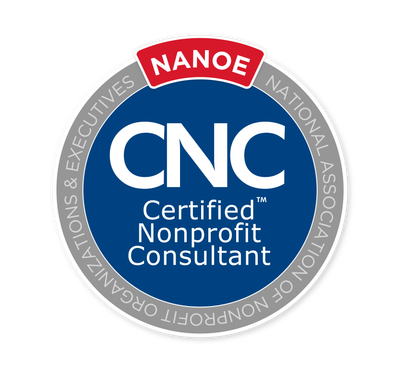- Home
- About
- COVID 19
- Services
- Contact
- The Advantages of 501(c)3 Status
- IRS
- Approved LIst of Non-Profits Recognized by the IRS in Massachusetts
- Secretary of the Commonwealth
- Massachusetts Attorney General
- CORI Check
- Board Source
- Small Business Administration
- Individual Educational Plans
- NCI Blog.
- Schedule A Consult
- We are here to assist you with all your organizational development needs. Hablamos Espanol
- HI TRUST Alliance
- HHS HIPAA
- US Department of Labor/OSHA e Tools
- HIPAA TRAINING
- Store
The Advantages of 501(c)3 Status
What Are The Advantages Of Forming A 501(c)3?
Here is a list of many common 501c3 advantages. There may be other advantages of 501c3 status that would apply to your specific organization type.
- Make a nice living while doing good. Nonprofits can pay salaries. At the end of the day, feel good about the good you have done.
- Tax-deductibility of donations to the organization—you can give tax-deductible receipts for all cash and non-cash donations.
- Lower nonprofit postage rates for mailing over 250 identical pieces of mail.
- Public service announcements on radio and TV (free but limited availability).
- Limited liability for directors and officers for operations of the organization (some exceptions: e.g., gross negligence, unpaid taxes).
- Perpetual existence. The corporation continues on after the death of the founder(s).
- Government and private grants are available for tax-exempt organizations.
- Miscellaneous—employee fringe benefits not generally available to the self-employed person or business owner, e.g., group life insurance, health insurance, payments of medical expenses and approved corporate pension and retirement plans. Some stores and businesses give a discount to nonprofit corporations and employees of nonprofits. Some publications give an advertising discount to nonprofit organizations.
- Many stores and business (e.g., Walmart) give a discount to nonprofits and their employees if they can provide a copy of their 501c3 status letter from the IRS.
- A nonprofit organization (even a church) needs 501(c)(3) status to obtain food from a government food bank.
- Once your organization secures tax-exempt status, it is permanent. You don’t have to go back and renew it, ever.
- A church must have 501(c)(3) status if it wishes to have a group exemption for its “daughters” or subordinate churches under it.
- 501c3 nonprofits can obtain food from food rescue programs as well as food banks. Food rescue programs typically obtain perishable and prepared foods (such as from restaurants and grocery stores) and distribute it to agencies that feed hungry people, usually later that same day.
- A nonprofit organization (even a church) needs 501(c)(3) status in order to benefit from the Bill Emerson Good Samaritan Act. This act of Congress releases restaurants and other food organizations from civil and criminal liability associated with the donation of food to nonprofits assisting individuals in need. The act protects donors in all 50 states from civil and criminal liability for good faith donations of “apparently wholesome food,” defined as meeting “all quality and labeling standards imposed by federal, state and local laws and regulations even though the food may not be readily marketable due to appearance, age, freshness, grade, size, surplus or other condition.”
- For churches and congregations only: Pastors can receive certain tax benefits. If you want to issue a call to a pastor from a foreign country—to come here and preach or pastor—it is much more costly and much more time-consuming if your church or congregation doesn’t have its 501(c)(3) tax-exempt status. A church needs to be incorporated to hold property in the name of the church (the property should normally be held in the name of the church, not in the name of the pastor or other individual).
How Many Board Members Are Ideal To Start A 501(c)3?
Many organizations start with the minimum amount of board members. The ideal number to start is four. The positions that must be filled are the ones of the executive committee. These positions are president, treasurer, Secretary, and at least one director or board member. After this you can grow your board and add as many members as your by laws dictates or as your organization requires to carry out its mission.
What Are The Required Documents Boards Must Have?
There are many forms or documents that a board of directors should have or could have. Much of this is dependent on your organizational goals. However, the most essential documents are the Articles of Organization, By Laws, 990 policy, anti discrimination policy, sexual harassment policy, and several more depending on your mission. We will usually review the organizations mission and potential services or programs ad make a recommendation of which documents to create. We then assist you in creating these documents.
Must A Non-Profit Register With The States Attorney General ?
The short answer is yes. However, in some states this registration may be required only if your fundraising will rise above a particular threshold. Therefore, research must be conducted in order to determine your particular states requirements.
How Are Non-Profit Board Meetings Conducted?
Non-Profit board meetings can be managed in many ways. One can use consensus or some other method. However , we have found that the recommended mechanism for managing a board meeting is through the use of Roberts Rules of Order. It tends to be efficient and allows boards to accomplish their work goals while dedicating minimal time at a meeting. The average board meeting last around 3 hours. This is of course not very productive. Boards that use Roberts Rules of Order perform better, faster, and meetings are shorter in length. The average board meeting using Roberts rules of order is 1.5 hours.
What Are The Most Popular Risk Management Models
COBIT
OCTAVE
NIST 800-39
HB 158-2010
ISO/IEC 31000
ITIL
CRAMM
FAIR
VAR
OCTAVE
NIST 800-39
HB 158-2010
ISO/IEC 31000
ITIL
CRAMM
FAIR
VAR



